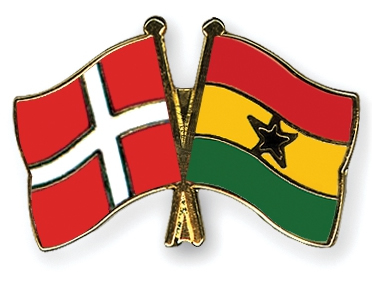 Ms Tove Degnbol, the Ambassador of Denmark to Ghana, has lauded Ghana’s good track record on human rights; stating however, that all countries could improve.
Ms Tove Degnbol, the Ambassador of Denmark to Ghana, has lauded Ghana’s good track record on human rights; stating however, that all countries could improve.
She explained that the Universal Periodic Review (UPR), which Ghana was about to undergo on Human Rights for the third time, in November, was an important occasion for the country to take stock and assess the need for further strengthening of critical key aspects.
The UPR is a mechanism established by the UN to peer-review, and to examine the human rights records of each Member State every five years.
She said the UPR was an opportunity for the Government of Ghana to demonstrate actions taken so far to improve the human rights situation in Ghana and an important platform for discussing the issues, which were still outstanding.
Ms Degnbol made these remarks, on Thursday, at the UPR In-country Precession meeting between the Diplomatic Community and human rights organisations, in Accra.
The meeting was on the theme: “Diplomacy Meets Human Rights: Ghana’s Human Rights Record (UPR: A Process, Not an Event)”.
It was organised by the POS Foundation, which currently serves as the Secretariat of the Ghana Human Rights NGOs Forum, in collaboration with KASA initiative Ghana, UPR Info Africa Office and the Office of the United Nations in Ghana, The Danish International Development Agency (DANIDA) is funding the process.
The representatives of the Diplomatic Community and civil society organisations discussed the status of human rights in Ghana as part of the ongoing UPR, which tracks the progress of Ghana’s human rights obligations and commitments.
Ghana’s human rights record was reviewed at the Human Rights Council’s UPR in 2012 and 2008.
In reaction to the 2012 report, Ghana received 150 recommendations from 63 States. Out of these recommendations the majority was accepted, and 25 noted.
The purpose of the workshop is to dialogue with participants on the UPR process, the UN mechanism and efficient reporting on its operations.
This is in preparation towards Ghana’s review by the UN human Rights Council at Geneva, Switzerland.
Ms Degnbol congratulated the POS Foundation and the Ghana Human Rights NGOs Forum for collaborating with the Government to review the state of human rights in Ghana through the UPR Process.
“Ghana and Denmark are both signatories to the UN Convention against Torture, and together we are part of the core group of the Convention against Torture Initiative, where Ghana is representing Africa and Denmark is representing Europe,” she said.
Ms Degnbol announced that Denmark was a candidate to the UN Human Rights Council for 2019 – 2021 precisely because they considered protecting and promoting human rights a key international responsibility.
Dr Christine Evans-Klock, the UN Resident Coordinator in Ghana, commended civil society organisations (CSOs) in Ghana for their commitments towards human rights.
She said the UPR process was a unique instrument because it gave opportunity to all member states to come together and think critically on the progress that had been made in human rights protection.
She stated that the UN was committed to working with the Ministry of Justice, CSOs and partners to help Ghana respond to the ratifications that would come from the UPR review.
Mr Jonathan Osei Owusu, the Executive Director, POS Foundation, said Ghana had all the laws and recommendations, however, implementation had always been a problem; hence the need for the meeting to know whether the recommendations made in the 2012 review were being enforced.
He said POS Foundation, and other human rights organisations wanted to ensure that the Government was doing the right thing and putting in the right mechanisms to address human rights issues.
Mr Gilbert O. Onyango, UPR Regional Representative for Africa, said the UPR was a process and not an event.
He lauded Ghana’s free and open space for the CSOs; adding that this was a true testament to the Ghana Government’s efforts to ensure that human rights were promoted.
Mr Kwame Mensah, Care International, Technical Expert to KASA Initiative Ghana, said in the forthcoming Ghana’s UPR, the extractive industry would be included because there were some forms of human rights violation occurring in it.
Naya Yopeyo Dadetsu, the Queenmother of Dodowa, who chaired the function, said despite the huge successes Ghana had chalked in democratic governance, there was still more to be done in the areas of human rights.
Source: GNA























